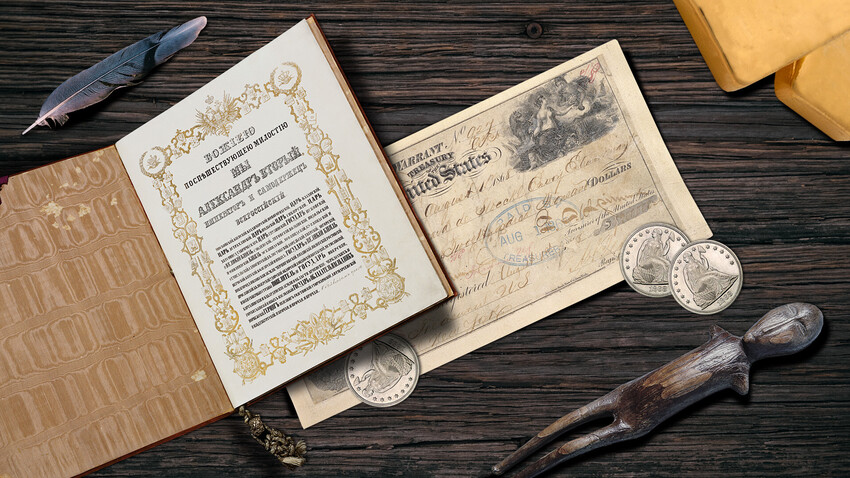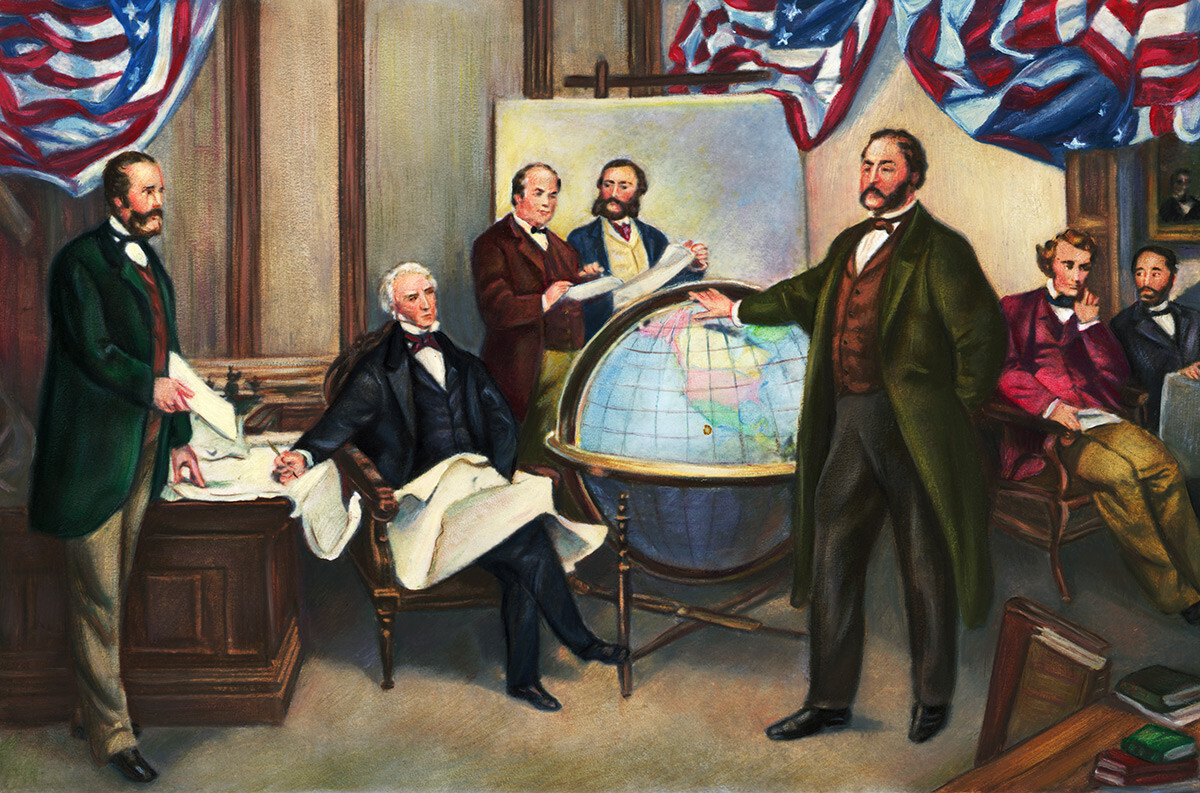
The legend goes that after the deal of selling the Russian territories in Alaska to the U.S. was finalized, Russia received 7 million dollars. One and a half million went to the bank [located in London] for conversion, the remaining 5.5 million in the form of gold bars were allegedly sent from London to St. Petersburg. In early July of 1868, the gold was loaded onto a ship named ‘Orkney’. On July 16, 1868, the Orkney sank before it could reach Saint Petersburg. And the insurance company, in order not to pay compensation for the valuable missing cargo, quickly declared itself bankrupt. Therefore, Russia did not receive any money – so legend goes.
First of all, even though there was a ship called ‘Orkney’ in 1868, she was en route to South America that year, American writer Bonnie Loshbaugh found out. After 1868, the ship continued sailing, was mentioned in the 1871 register and so on. Therefore, the whole story was most likely just made up.

"Signing of the Alaska Treaty" by Emanuel Leutze, circa 1867
Getty ImagesIt is true, however, that Russia never received this large amount of gold. Moreover, it would have been just logistically very hard and dangerous to do it. In 1867, 7.2 million dollars was more than 11 million rubles (while, for example, the annual budget of the Naval Ministry of Russia was about 15 million rubles at the time). So, instead of shipping the gold from the U.S. or elsewhere, Russia decided to spend the money abroad – it desperately needed American machinery for its new emerging railroads.
A document dating back to the second half of 1868 was found in the Russian State Historical Archive by researcher Alexander Petrov. The document proves that indeed most of the money paid for Alaska went to fund the railroads. “The 11,362,481 rubles and 94 [kopecks] due were received from the North American States for the Russian possessions ceded to them in North America. Of the 11,362,481 rubles and 94 kopecks – 10,972,238 rubles and 4 kopeks were spent abroad on the purchase of accessories for railways: Kursk-Kiev, Ryazan-Kozlov, Moscow-Ryazan, etc. The remaining 390,243 rubles and 90 kopeks were received in cash.”
So, eventually, the Russian Empire did receive some cash, but 390 thousand rubles was a sum that could be easily transported in luggage, without any designated ships involved – except, of course, for those ships that brought the railroad machinery to Russia later.
If using any of Russia Beyond's content, partly or in full, always provide an active hyperlink to the original material.
Subscribe
to our newsletter!
Get the week's best stories straight to your inbox